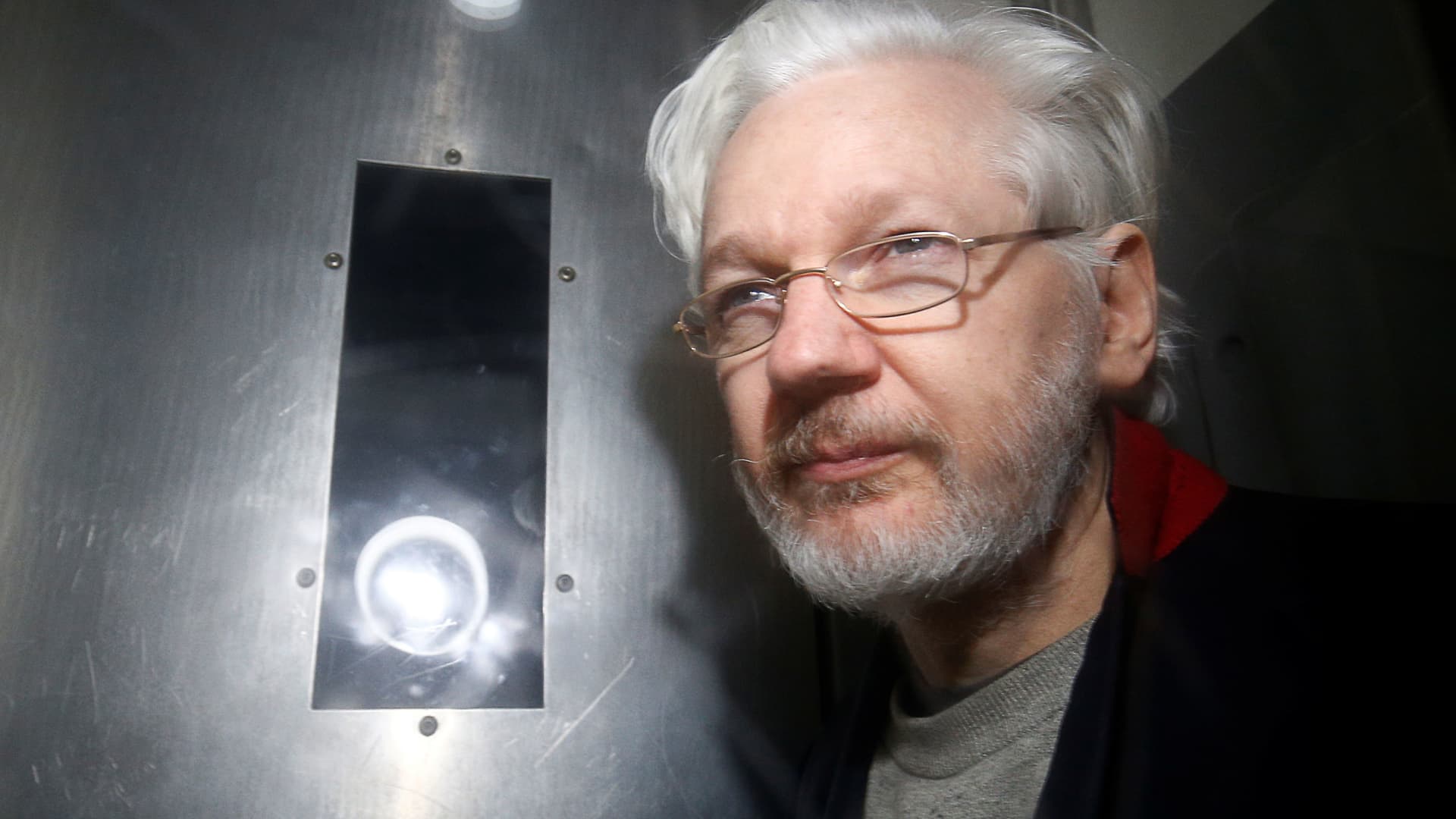
26 Mar UK court rules Julian Assange can appeal his extradition to the U.S.
WikiLeaks’ founder Julian Assange leaves Westminster Magistrates Court in London, Britain.
Henry Nicholls | Reuters
WikiLeaks founder Julian Assange on Tuesday was granted permission by a U.K. court to appeal his extradition to the U.S., where he is wanted on spying charges.
Assange will therefore not be extradited immediately, the court said.
The ruling from the Royal Courts of Justice in London means Assange will have the opportunity to pursue a new hearing, unless the U.S. provides “satisfactory assurances” on certain aspects that would address his grounds of appeal.
The court said it would give the U.S. three weeks to give assurances that Assange is permitted to rely on the First Amendment of the U.S. Constitution, that he is not prejudiced at trial by reason of his nationality, that he is afforded the same First Amendment protections as a U.S. citizen and that he would not be subject to the death penalty.
An appeal hearing will be granted if those assurances are not given. A further hearing on May 20 will determine whether the assurances provided are satisfactory, the court said.
The 52-year-old has been battling extradition for more than a decade. In that time, Assange has spent seven years in self-exile in the Ecuadorian embassy in London and the last nearly five years at Belmarsh, a high-security prison on the outskirts of the U.K. capital.
Assange is wanted in the U.S. on 18 charges, including 17 under the Espionage Act and one under the Computer Fraud and Abuse Act. He faces up to 175 years in prison after WikiLeaks published hundreds of thousands of leaked confidential military files and diplomatic documents related to the Afghanistan and Iraq wars.
The U.S. says that the charges relate to Assange’s alleged role “in one of the largest compromises of classified information in the history of the United States.”
U.S. prosecutors seek to put Assange on trial for the release of the confidential military files and diplomatic cables. Assange has denied wrongdoing, and his lawyers have said the case against him is politically motivated.
Metropolitan Police officers outside the Royal Courts of Justice in London, ahead of a hearing in the extradition case of WikiLeaks founder Julian Assange. Picture date: Wednesday February 21, 2024.
James Manning – Pa Images | Pa Images | Getty Images
WikiLeaks gained international prominence in 2010, when the website released footage from a 2007 U.S. helicopter attack that killed two Reuters news staff and several others in Iraq’s capital, Baghdad.
It followed up this high-profile release by publishing hundreds of thousands of other classified files, making disclosures that often embarrassed Washington.
Assange did not attend a two-day hearing in February at London’s High Court due to “serious poor health,” WikiLeaks said via the X social media site at the time.
This is breaking news. Please check back for updates.
